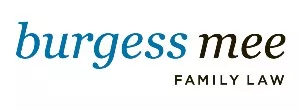Do I need to provide financial disclosure as part of any mediation and if so, what does that look like?
As part of our series of articles for Mediation Week, today we are looking at the issue of disclosure when addressing the financial aspect of a separation. One of the first questions we are often asked is whether this even needs to be provided and if so, in what form? The principle driving force behind this question is usually one of cost both in terms of time and expense.
In the first instance, yes, you and your partner will both need to provide full and frank financial disclosure as part of your mediation. This is so that you are both able to make informed decisions with all the information available to you. This will give you both the best possible chance of reaching a fair agreement but also give you the space to be creative with your solutions on the basis that you are aware of the complete financial circumstances of your relationship.
This can be carried out in a number of different ways, and the flexibility of mediation allows you and your partner to choose the route that best suits you. Generally, there are two main pathways: i) the use of a court document known as a Form E (which can be found online) or ii) your mediator may have their own bespoke document that will generally cover the same headings used in a Form E but in a shortened format. Whichever route you choose, you and your partner will provide documentary evidence in support of your property and capital assets (including bank accounts and investments), your liabilities, income, pensions and any business or trust interests. As part of the process you will also provide the full details of your income.
The benefit of using a Form E is that this is a comprehensive document which includes narrative sections for the parties to set out their capital and income needs (the former normally concerns their housing) and that can be a crucial step along the way, identifying at an early stage what both parties say they require from any financial settlement.
Once both parties have completed their financial disclosure this is exchanged and each of you will have the opportunity to ask questions of the other and make any further enquiries where any clarity or more information is needed. Usually this is done outside of mediation but there will normally be at least one session where you, your partner and your mediator will go through the financial disclosure together to identify any omissions and confirm the base values you will use to discuss an agreement. Once that has been completed, your mediator will ordinarily prepare a document known as an "open financial statement" which is essentially a schedule of assets and liabilities and income. This will provide an 'aerial' view of your financial position which can be then used in mediation flexibly to 'reality test' different scenarios and outcomes.
Unlike the sessions themselves which are held on a "without prejudice" basis, all financial disclosure is exchanged 'openly' owing to the factual nature of the same. This means that it can be referred to in court if mediation does not progress and any omissions brought to the attention of a judge.
If you do have any questions about your partner's disclosure, that does not necessarily mean there will be any delay with the process. You can hold sessions around those issues if you feel comfortable doing so or you can pause the joint sessions until you are ready to continue. You can at any point get the assistance of a solicitor to help you prepare and exchange your financial disclosure. They can also assist you by providing advice about likely outcomes once disclosure has been exchanged which you can then take into the mediation sessions themselves.
Transparency is crucial. Once an agreement has been reached, your mediator will prepare a document known as a "memorandum of understanding" a without prejudice summary of the agreement that you and your partner can take away and review usually with the benefit of legal advice. Your lawyers will then be able to prepare all the court documentation necessary – which must include a short open summary of your financial position and the net effect of your agreement – to submit to the court for a judge to consider any inequality.
The content of this article is intended to provide a general guide to the subject matter. Specialist advice should be sought about your specific circumstances.

